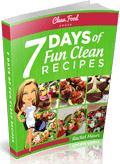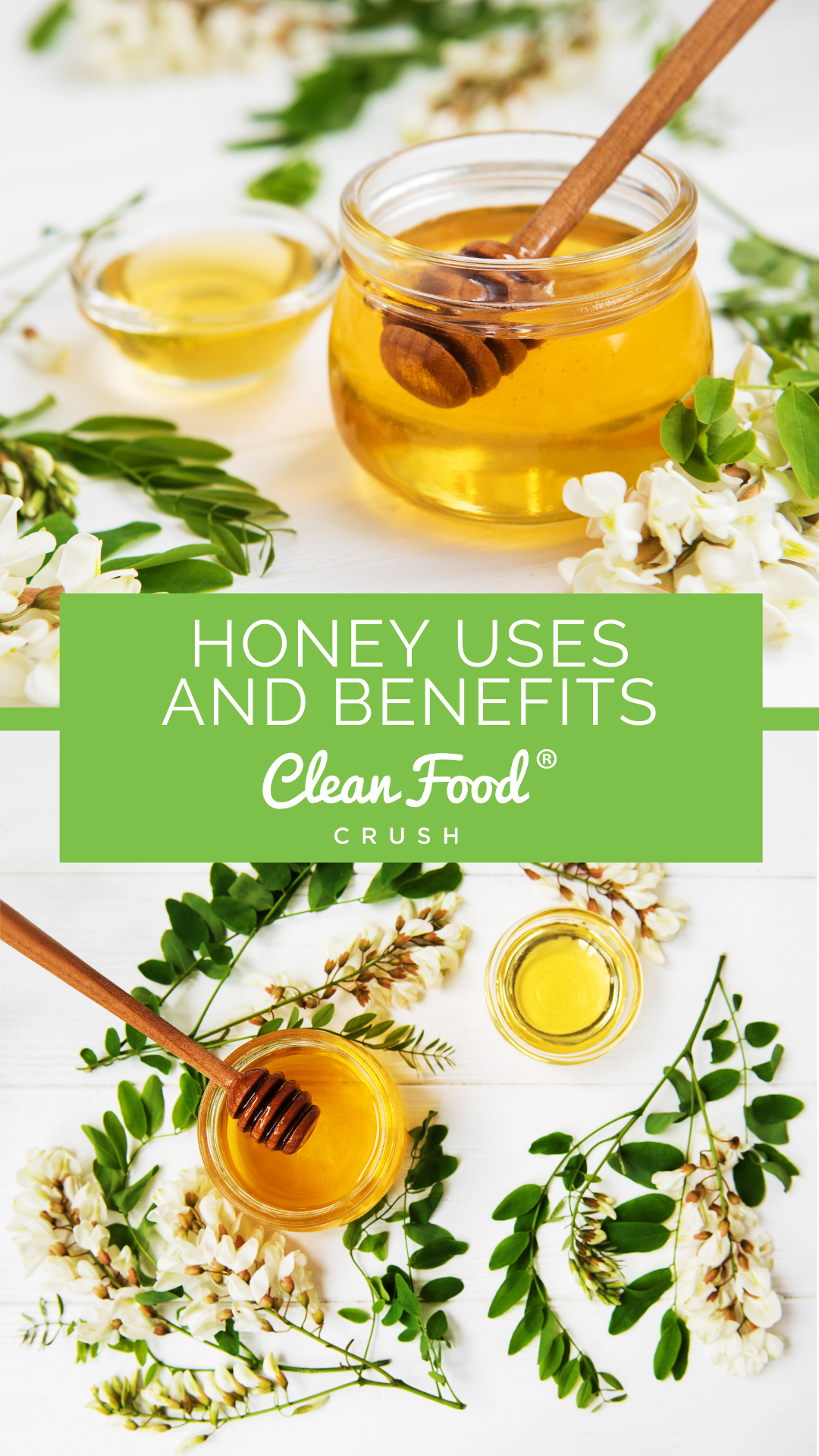

6 Uses and Benefits of Raw Honey
When trying to be healthier and eat clean, it may be tempting to avoid everything with sugar. While the intention behind this is good because sugar is mainly associated with processed drinks and desserts that can quickly become addictive, it’s not always accurate.
Natural sugar exists in many foods that are incredibly beneficial to one’s health, including fruit and, you guessed it: raw honey.
Honey, the natural sweetener made by bees using the nectar from flowers, is filled with practical uses and health benefits. While you can purchase it from the store with various types and levels of color grades and pasteurization, it’s best to get your honey local. This supports your local farmers and small stores, which is essential for a working economy, and your local bees, which need your help. Bees are a vital part of our ecosystem and environment, and without them, we’d lose more than half of the fruits, vegetables, and meats we currently enjoy.
So, the majority of the following uses and benefits are referring to raw honey farmed locally. But, if that’s not an option for you, purchase raw, unprocessed honey rather than the pasteurized counterpart.
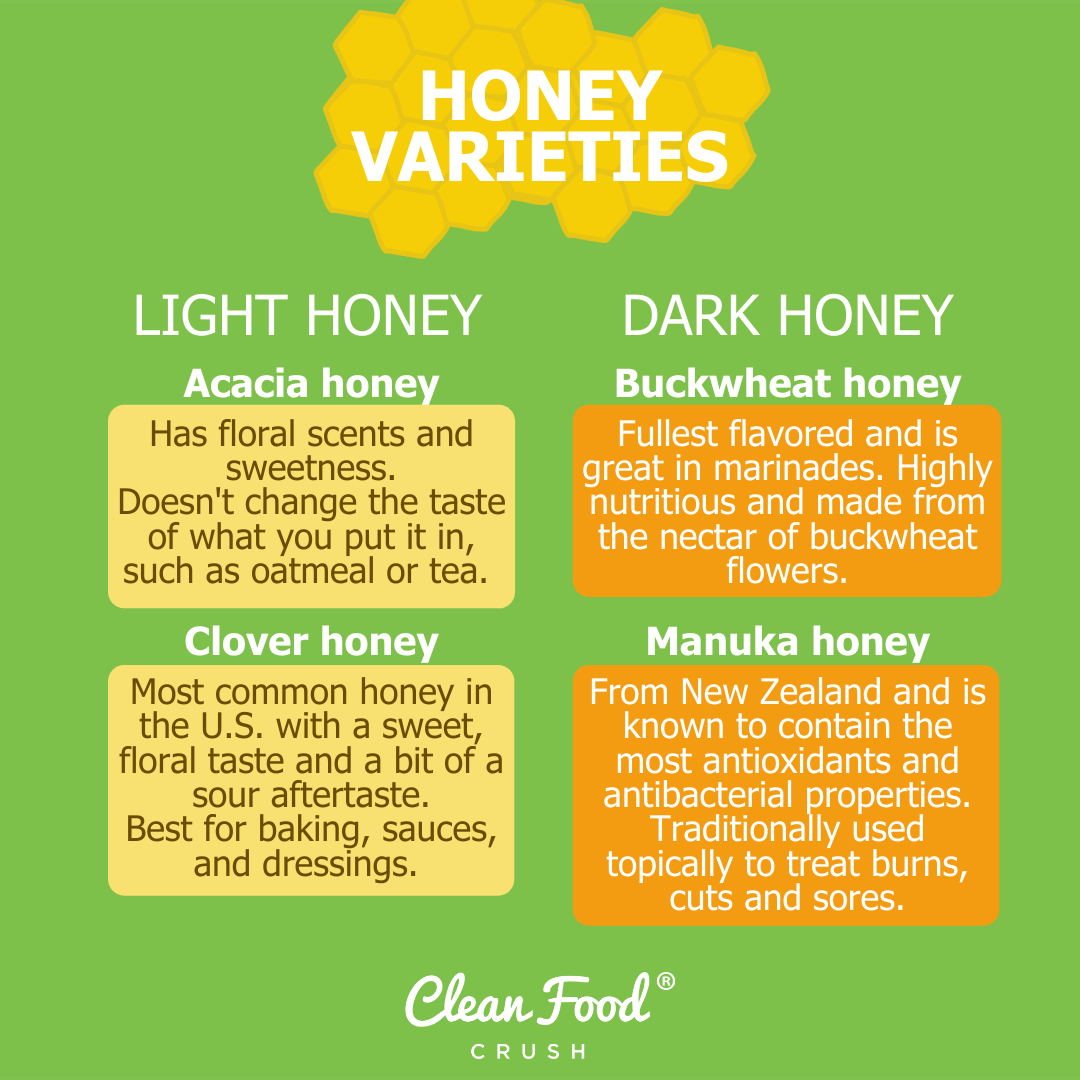
Here Are 6 Uses and Benefits of Raw Honey:
1 Helps Treat Seasonal Allergies
When you ingest honey made by local bees, then you are also consuming the local pollen. This may seem counterproductive, as the pollen is what you’re allergic to, right? But what’s happening is, over time, you become less sensitive to the pollen. Your body is acclimating to it and will hopefully begin to show fewer seasonal allergy symptoms.
One way to make use of this benefit is by having a tablespoon of local honey every day. You can eat it by itself, add it to a smoothie, or in a cup of warm water or tea, which I will explain more later.
2 Relieves Sickness Symptoms
When you were sick as a kid, did your parent ever tell you to drink a warm glass of water with honey? Or just give you a spoonful? Do you still add honey to hot tea when your throat hurts? There’s a reason why we do this!
Some studies show this could be a placebo effect, but most likely, honey truly does relieve cold symptoms, sore throats, and coughs. Research shows that honey is just as, if not more effective as many over-the-counter medicines prescribed to treat coughs and sore throats. It can also help improve sleep, especially if sleep is interrupted due to a cough or other common sicknesses.
Pour yourself a cup of tea or hot water and add a tablespoon of honey and some lemon juice for extra benefits. Drinking this can help with coughs, sore throats, sleeping, and allergies, along with the other benefits included below.
Remember to NEVER give honey to children under the age of one due to the risk for botulism. And consult your doctor if you have any questions or concerns.
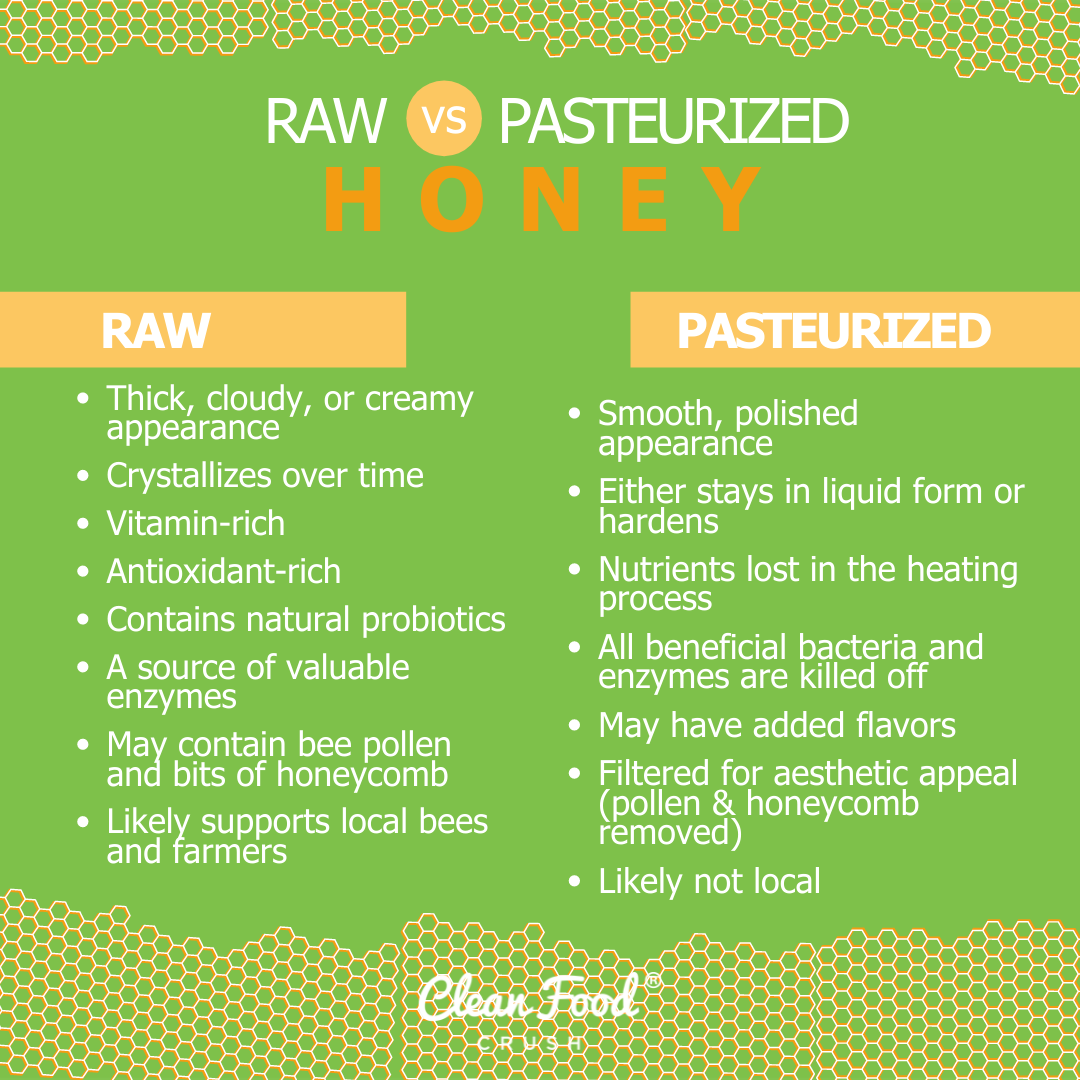
3 Heals Wounds and Burns
Many studies and reviews have been done about the effects honey has on wounds and burns, with the conclusion that the defensin-1 protein found in honey does promote healing. Raw honey naturally contains hydrogen peroxide, an antiseptic that can kill harmful bacteria. The honey also nourishes surrounding tissue, making it an effective treatment for diabetic ulcers and other wounds and burns.
Manuka honey, in particular, is excellent for treating wounds through topical application. However, it is important to note that honey is not a replacement for necessary medical care, and you should see a doctor for any severe injuries. In addition, some studies have shown honey can increase the risk of infection in diabetic patients, so always consult your doctor if you have any concerns.
4 Beneficial for Skin and Hair Care
Honey’s antibacterial, antiviral, anti-inflammatory, and antioxidant properties make it a great choice for treating skin ailments and conditions. Today, you’ll find honey listed in many beauty products and included in many DIY face masks, hydrating hair masks, and other skin care recipes.
Honey has both emollient and humectant properties, making it a great moisturizer for both skin and hair. Applying it to your hair can help with growth, shine, conditioning, lightening, and breakage. It’s a great natural hair product that promotes cell growth, restores nutrients, and retains moisture. So, consider adding honey to your routine for healthier, happier hair.
Using honey on the skin can aid in treating acne, anti-aging, and daily skincare maintenance. It won’t work for everyone, but manuka and kanuka honey are both known to improve acne. Honey can help keep your skin free of bacteria, which could expedite the acne healing process.
Before using it, do a patch test by applying a small amount of honey to the skin and waiting twenty minutes. If your skin becomes irritated, this isn’t for you. And be sure to consult your doctor before using honey as a treatment for serious skin conditions.
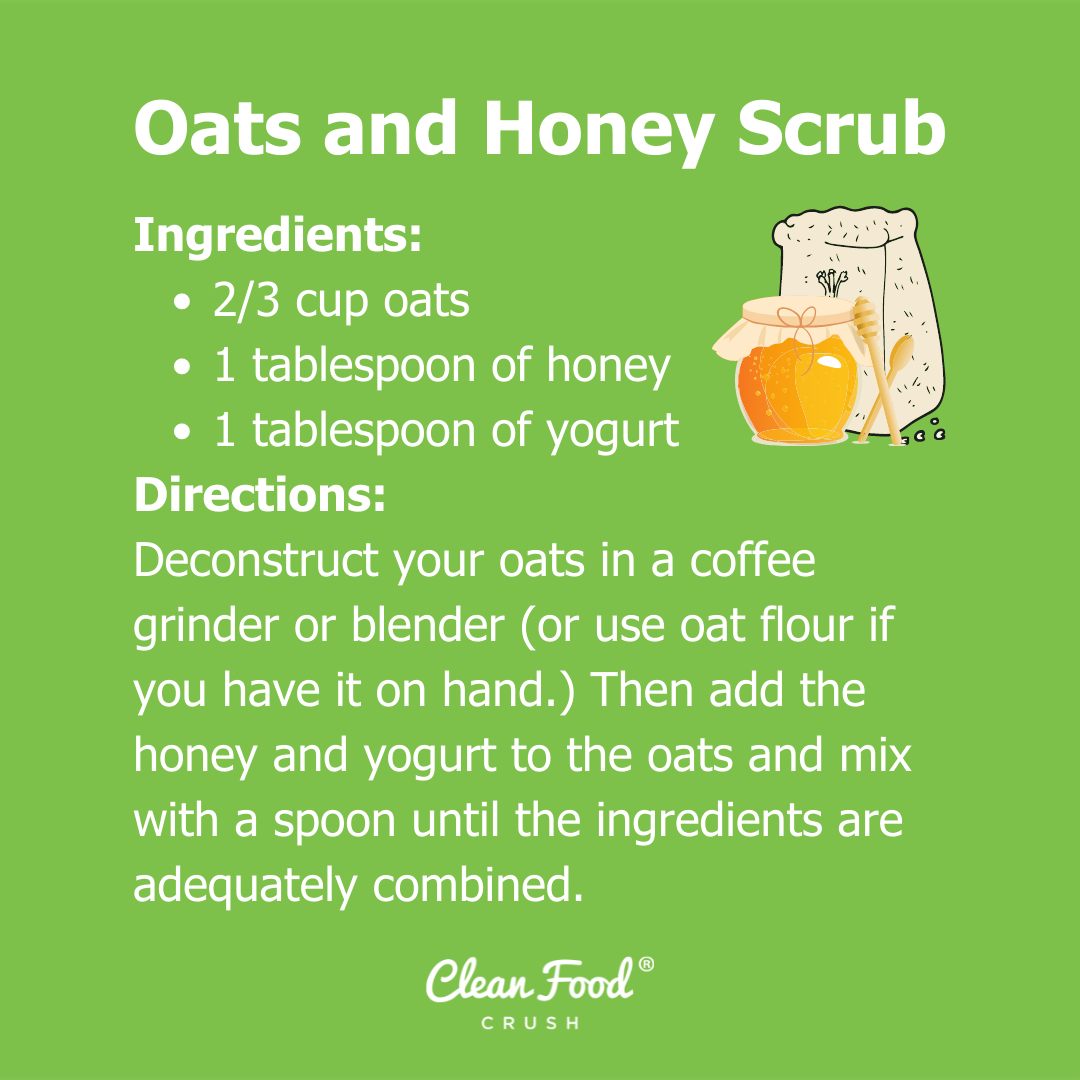
There are multiple beauty uses, but let’s start with just three.
- DIY scrub: Mix honey with other ingredients such as brown sugar and vanilla extract or blended oats and yogurt. (Essential oils are an optional addition for both). Massage the scrub directly to your skin and wash it off with warm water and a towelette.
- Moisturizer: Apply the honey directly to the face (mixed with some warm water if needed), massaging gently before washing it off ten minutes later with lukewarm water.
- Hair Mask: (This recipe is best for damaged or dry hair). Mix ½ cup of raw honey with ¼ cup of olive oil and heat it for about 20 seconds before stirring (wait until the mixture is warm but no longer hot) and applying it directly to your scalp and (clean and damp) hair. Leave for about thirty minutes, preferably with a hair cap on, and rinse the mask out with shampoo and warm water.
5 A Good Source of Antioxidants
You don’t want to get pasteurized honey for this benefit, as pasteurizing removes many of the healthy antioxidants found in honey, including the organic acids and phenolic compounds like flavonoids. Antioxidants are essential for good health linked to the reduction of heart attacks, strokes, and cancer. Antioxidants also aid in lowering blood pressure and reduce the risks of heart disease.
However, I should mention that the types of antioxidants found in honey depend on the kind of flowers the bees are pollinating. So while there are many benefits in the antioxidants, they vary, have not been studied long term, and should not replace professional medical help.
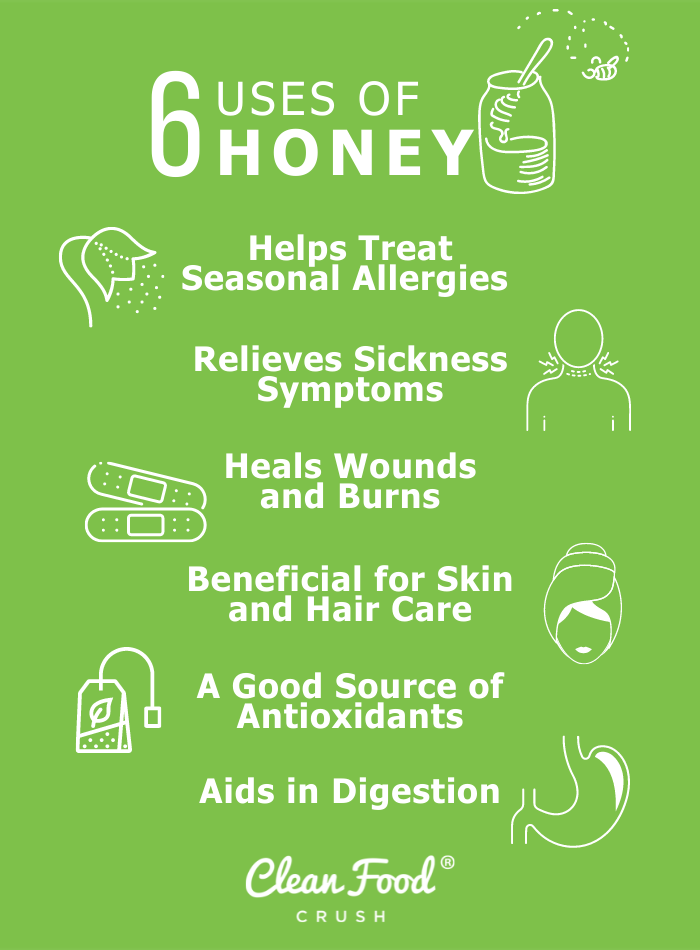
6 Aids in Digestion
You may be surprised to learn that research has shown honey can alleviate many digestive problems, including constipation, diarrhea, abdominal pain, and irregular bowel movements. Raw honey soothes digestion by reducing inflammation and attacking bacterial infections like Clostridium difficile, which causes bowel inflammation and diarrhea.
To take advantage of this remedy, mix 1-2 teaspoons of raw honey with a drink (such as water or tea) and enjoy it preferably on an empty stomach. But avoid ingesting too much honey or the excess sugar can actually make the digestion issues worse.
This benefit is the least researched of the other five, and many studies have only been done on rats and with test tubes, so further research is needed to know the full extent of honey’s influence on the digestive system and bowel bacterial infections. Be sure to ask your doctor about any abdominal pain, persistent digestive issues, and IBS symptoms.
These aren’t all the fantastic health benefits honey has to offer, but some of the big ones. So, consider adding it to your morning tea and using it as a sugar alternative. It’s filled with crucial nutrients, such as varying antioxidants, amino acids, and vitamins. Most natural honey will include small amounts of many different vitamins and minerals such as calcium, magnesium, niacin, potassium, phosphorous, and zinc.
Honey won’t increase blood sugar levels as much as refined sugar, making it a better alternative for those with diabetes or those watching their sugar levels. But it does have fructose, which is sugar linked to many health problems. This means it should always be enjoyed in moderation. Even still, you can rest well, knowing honey is a much better and healthier option than plain white sugar.
In the end, always be aware of how much honey you’re consuming, as you should be with any other food. And try only to buy raw, organic, and local honey to get the full benefits of this fabulous food.
Keep CRUSHING it out there, and be sure to let me know your favorite recipe that calls for honey!












